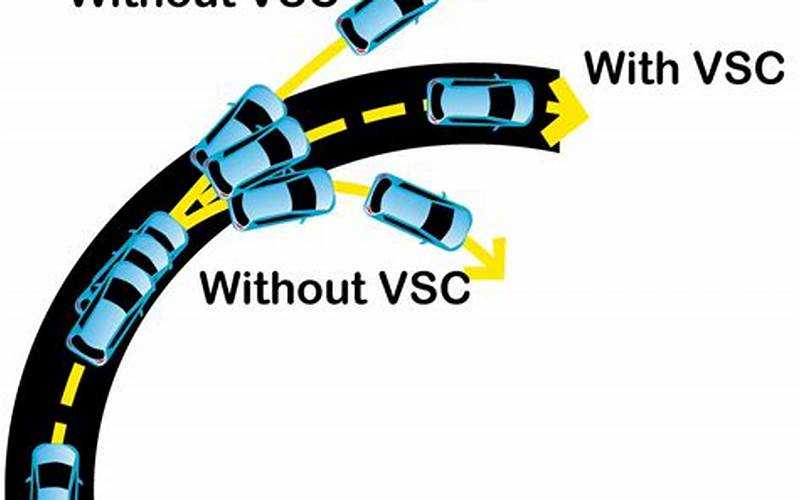
Introduction
Hello Toyota Owner,
Welcome to this informative article on the Toyota Vehicle Stability Control (VSC) system. In this article, we will explore the various features, strengths, weaknesses, and frequently asked questions about the Toyota VSC system. Whether you are a new Toyota owner or someone interested in learning more about vehicle safety, this article will provide you with valuable insights into this advanced technology.
Toyota VSC is a cutting-edge system designed to enhance vehicle stability and improve safety during challenging driving conditions. It utilizes a combination of sensors, computer algorithms, and intelligent braking systems to keep your vehicle on track and prevent skidding or loss of control. Let’s delve into the strengths and weaknesses of this remarkable technology.
Strengths of the Toyota VSC System







Weaknesses of the Toyota VSC System







Table: Complete Information about Toyota VSC System
| Feature | Description |
|---|---|
| Vehicle Stability Control (VSC) | A system that enhances vehicle stability by detecting and correcting potential loss of traction or skidding. |
| Traction Control System (TCS) | Works in conjunction with VSC to prevent wheel spin and loss of traction during acceleration or deceleration. |
| Anti-lock Braking System (ABS) | Prevents wheel lock-up during braking, enabling the driver to maintain steering control. |
| Oversteer | A condition where the rear of the vehicle loses traction and swings outward, potentially causing a spin. |
| Understeer | A condition where the front tires lose traction, causing the vehicle to drift wide during cornering. |
| Intelligent Braking | The VSC system selectively applies braking force to individual wheels to restore stability and prevent skidding. |
| Adaptive Sensors | Sensors that constantly monitor road conditions, tire traction, and vehicle dynamics to adapt the VSC system’s response. |
Frequently Asked Questions about Toyota VSC System
1. How does the Toyota VSC system work?
The VSC system utilizes sensors to monitor various parameters such as vehicle speed, acceleration, and steering inputs. Based on this information, it calculates the ideal brake force required to maintain stability and prevent skidding or loss of control. It selectively applies braking force to specific wheels, allowing the vehicle to regain stability.
2. Can I turn off the Toyota VSC system?
Yes, the VSC system can be temporarily turned off in certain situations, such as when driving on deep snow or off-road. However, it is crucial to exercise caution and only disable the system when necessary. It is recommended to refer to the vehicle’s owner’s manual for specific instructions on how to disable the VSC system.
3. Is the Toyota VSC system effective in preventing rollovers?
While the VSC system enhances stability and reduces the risk of rollovers, it cannot completely eliminate the possibility of a rollover in all situations. It is always important to drive responsibly, maintain appropriate speeds, and avoid sudden maneuvers that may increase the risk of rollovers.
4. Can the Toyota VSC system prevent hydroplaning?
The VSC system can significantly reduce the risk of hydroplaning by maintaining traction on wet surfaces. However, it is essential to drive cautiously and avoid excessive speeds in heavy rain or when there is a risk of hydroplaning.
5. Does the Toyota VSC system require regular maintenance?
The VSC system is designed to operate reliably for an extended period. However, regular maintenance and inspections of the overall vehicle, including the VSC system’s sensors and components, are recommended. This ensures optimal performance and early detection of any potential issues.
6. Can the Toyota VSC system be retrofitted to older models?
The availability of retrofitting the VSC system to older Toyota models may vary. It is advisable to consult with an authorized Toyota dealership or service center to determine if your specific model can be retrofitted with the VSC system.
7. Does the Toyota VSC system work in conjunction with other safety features?
Yes, the VSC system works seamlessly with other safety features such as the Anti-lock Braking System (ABS) and Traction Control System (TCS). This integration enhances overall vehicle safety by combining the benefits of multiple advanced technologies.
Conclusion
In conclusion, the Toyota VSC system is a remarkable technology that significantly enhances vehicle stability and safety. Its strengths, including enhanced stability, improved traction, and proactive safety measures, make it an invaluable feature for Toyota owners. While it has certain weaknesses and limitations, responsible driving practices and regular maintenance can ensure optimal performance of the VSC system.
We encourage all Toyota owners to leverage the benefits of the VSC system and prioritize road safety. Remember, your safety and the safety of others on the road are paramount. Drive responsibly, maintain your vehicle diligently, and enjoy the peace of mind offered by the Toyota VSC system.
Closing Words and Disclaimer
Thank you for taking the time to read this comprehensive article on the Toyota VSC system. We hope you found it informative and insightful. Please remember that the information provided in this article is for educational purposes only and should not substitute professional advice or guidance. For specific queries or concerns related to the Toyota VSC system, we recommend consulting an authorized Toyota dealership or service center.
 MyVans Your Vehicle Solution
MyVans Your Vehicle Solution